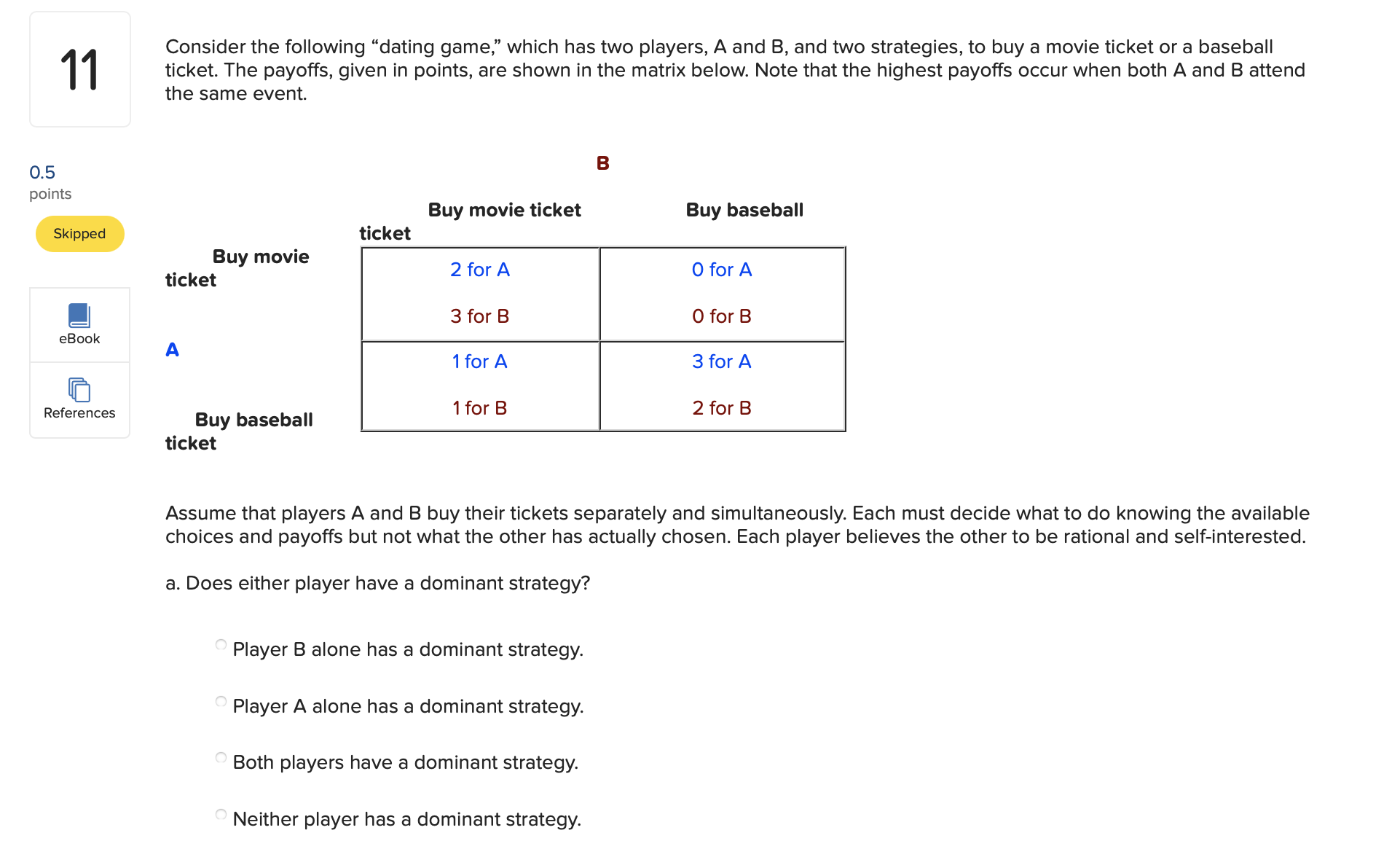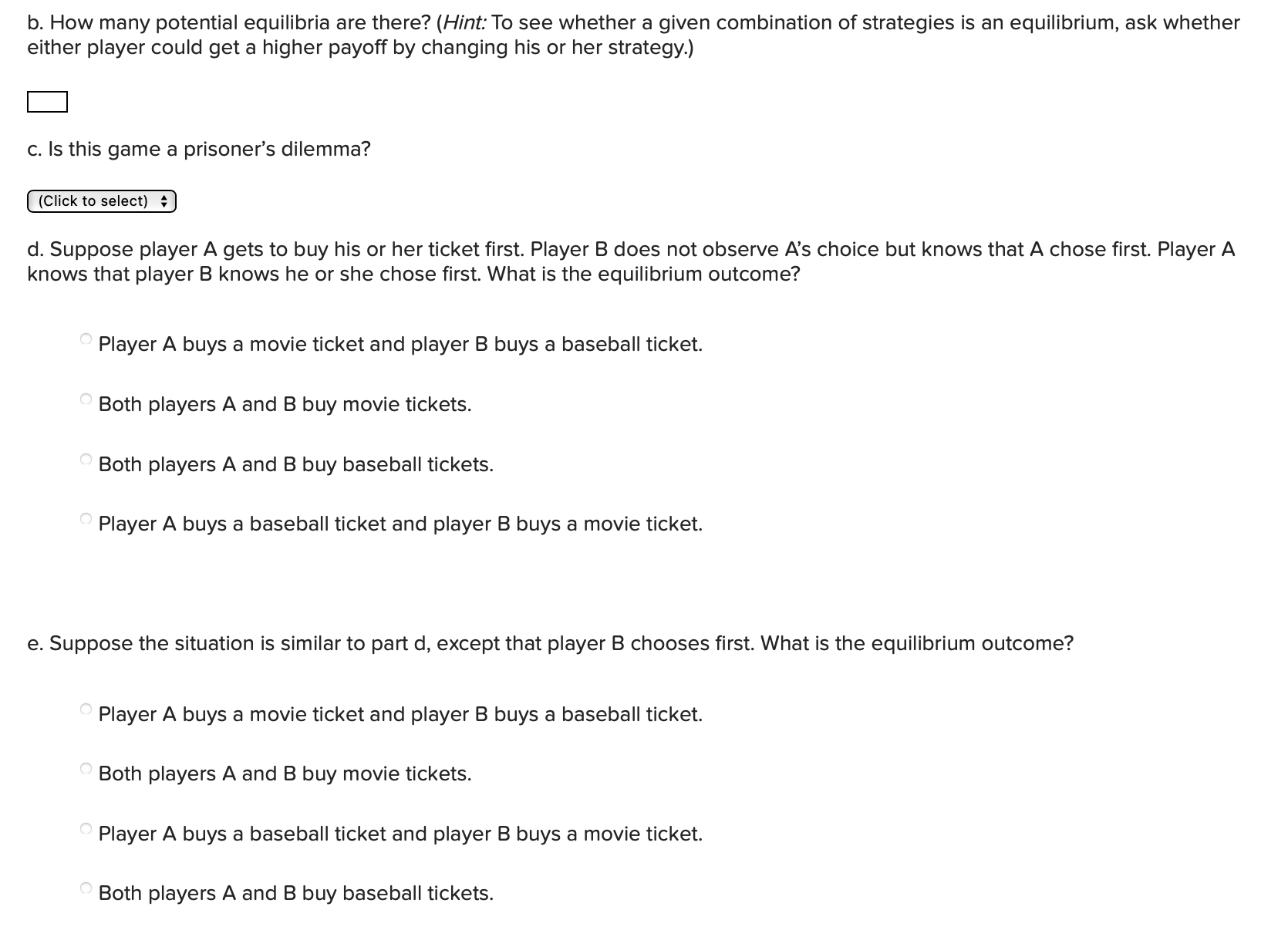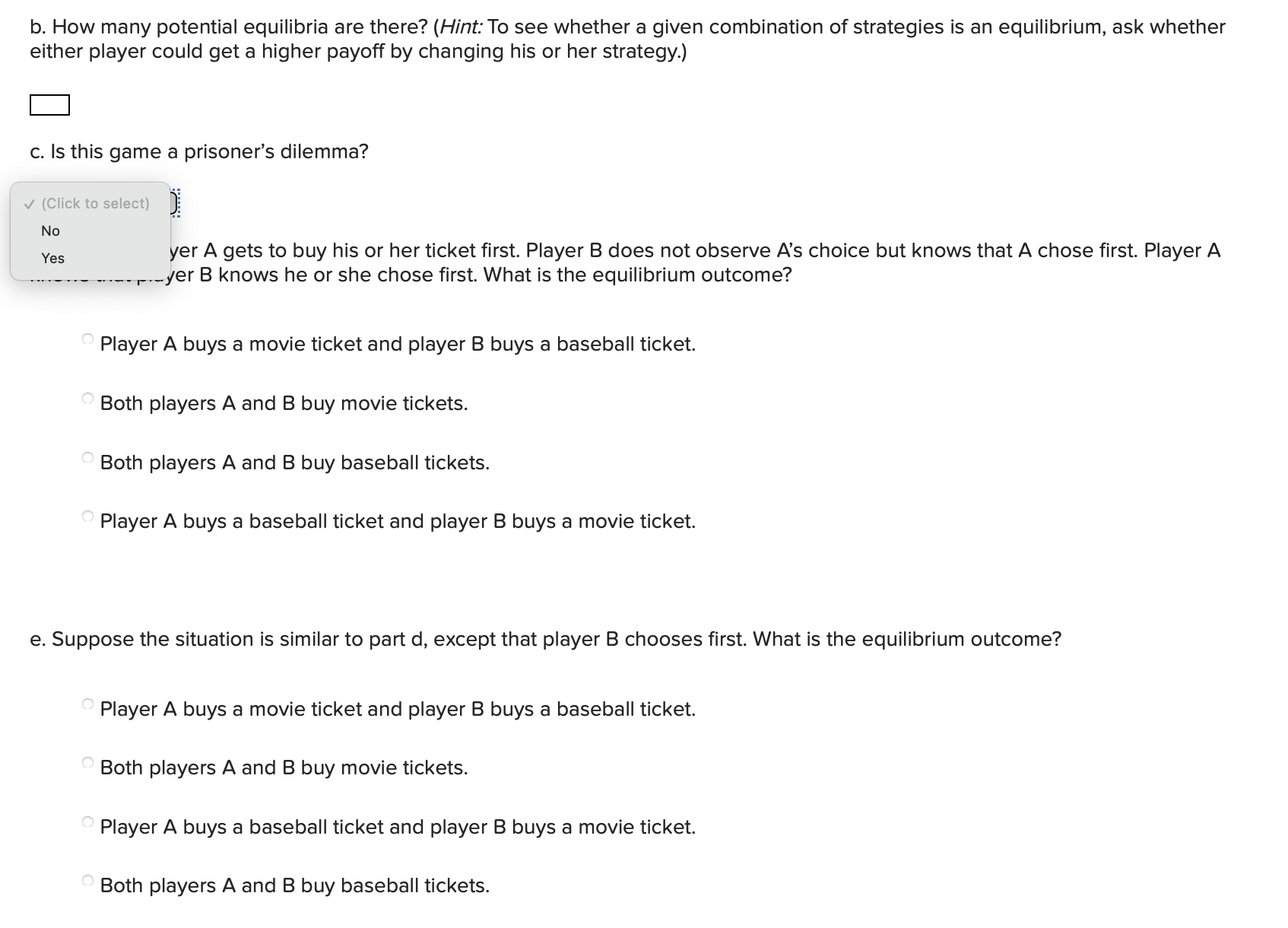- please help. this is everything. nothing is missing.
Consider the following \"dating game," which has two players, A and B, and two strategies, to buy a movie ticket or a baseball 11 ticket. The payoffs, given in points, are shown in the matrix below. Note that the highest payoffs occur when both A and B attend the same event. 0.5 3 points ' . Buy movne ticket Buy baseball skipped ticket Buy movie ticket 2forA OforA Q 3 for B o for B eBook A 1 for A 3 for A [Ii 1 f B 2 f B References Buy baseball 0f of ticket Assume that players A and B buy their tickets separately and simultaneously. Each must decide what to do knowing the available choices and payoffs but not what the other has actually chosen. Each player believes the other to be rational and selfinterested. a. Does either player have a dominant strategy? Player 3 alone has a dominant strategy. Player A alone has a dominant strategy. Both players have a dominant strategy. Neither player has a dominant strategy. b. How many potential equilibria are there? (Hint: To see whether a given combination of strategies is an equilibrium, ask whether either player could get a higher payoff by changing his or her strategy.) |:| C. Is this game a prisoner's dilemma? (Click to select) 9 d. Suppose player A gets to buy his or her ticket rst. Player B does not observe A's choice but knows that A chose rst. Player A knows that player B knows he or she chose first. What is the equilibrium outcome? Player A buys a movie ticket and player B buys a baseball ticket. Both players A and B buy movie tickets. Both players A and B buy baseball tickets. Player A buys a baseball ticket and player B buys a movie ticket. e. Suppose the situation is similar to part d, except that player B chooses first. What is the equilibrium outcome? Player A buys a movie ticket and player B buys a baseball ticket. Both players A and B buy movie tickets. Player A buys a baseball ticket and player B buys a movie ticket. Both players A and B buy baseball tickets. b. How many potential equilibria are there? (Hint: To see whether a given combination of strategies is an equilibrium, ask whether either player could get a higher payoff by changing his or her strategy.) |:| C. Is this game a prisoner's dilemma? \\I (Click to select} No Yes er A gets to buy his or her ticket rst. Player B does not observe A's choice but knows that A chose rst. Player A amyer B knows he or she chose first. What is the equilibrium outcome? Player A buys a movie ticket and player B buys a baseball ticket. Both players A and B buy movie tickets. Both players A and B buy baseball tickets. Player A buys a baseball ticket and player B buys a movie ticket. e. Suppose the situation is similar to part d, except that player B chooses first. What is the equilibrium outcome? Player A buys a movie ticket and player B buys a baseball ticket. Both players A and B buy movie tickets. Player A buys a baseball ticket and player B buys a movie ticket. Both players A and B buy baseball tickets









